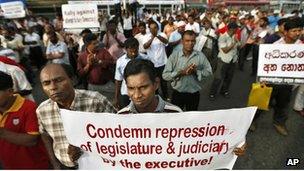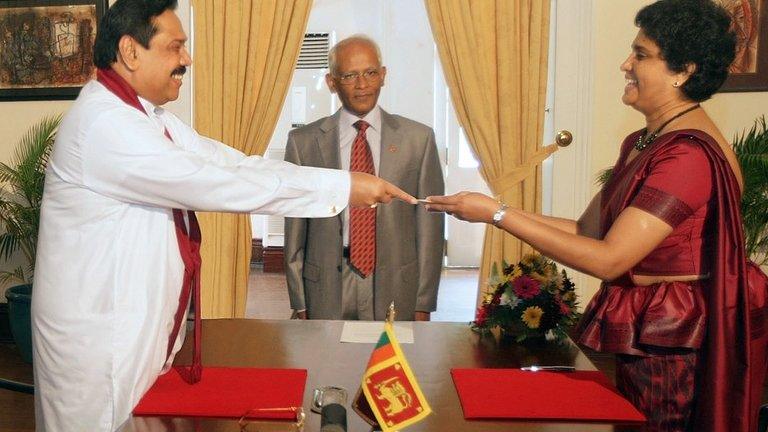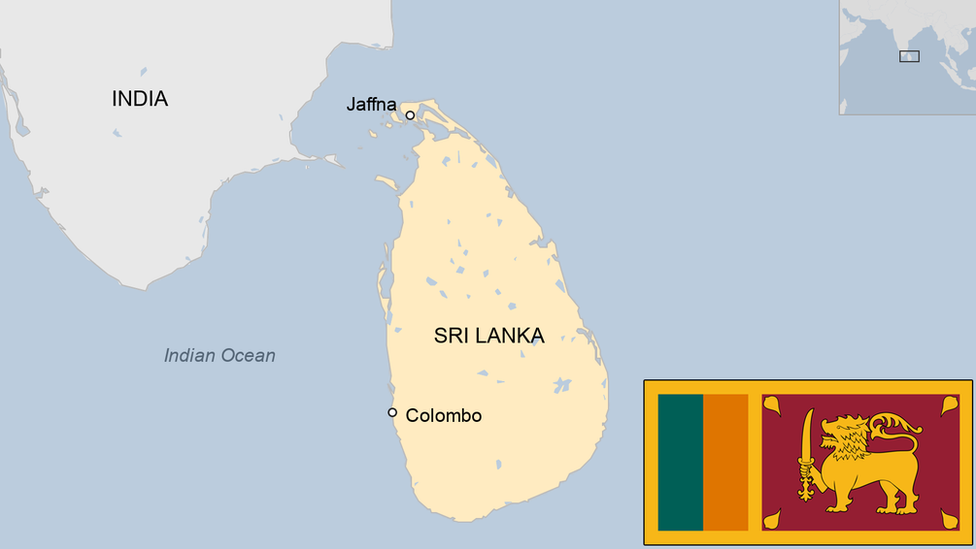Shirani Bandaranayake: Protest over bid to impeach judge
- Published

The protest in Colombo drew hundreds of opposition lawmakers and rights activists
Hundreds of Sri Lankans have marched in the capital, Colombo, in protest at the government's bid to impeach Chief Justice Shirani Bandaranayake.
Last week authorities said the chief justice had "affected the sovereignty of the people", without elaborating.
Critics say the move is evidence of the ruling party's attempt to stifle the courts' independence.
The government is due to announce on Tuesday whether it will press ahead with the impeachment process.
A parliamentary motion to impeach Ms Bandaranayake - appointed Sri Lanka's first female top judge in 2011 - was submitted last Thursday.
Impeachment is the only constitutional way to remove a sitting chief justice.
President Mahinda Rajapaksa's UPFA party has enough seats for the move to succeed, but the process could take months.
The initial proposal has received the approval of the required number of lawmakers, with nearly 120 MPs from the government side signing the motion.
'Threat to democracy'
A large crowd gathered outside the Supreme Court on Monday, denouncing what they see as Mr Rajapaksa's intention to cut the judiciary down to size, the BBC's Charles Haviland, in Colombo, reports.
The demonstrators, including many lawyers and opposition MPs, shouted slogans and displayed banners reading "hands off the judiciary".
"We have to protest, we can't be silent anymore because of this threat to our democracy," university lecturer Chandragupta Thenuwara said.
Last month, a judge was assaulted by a gang in Colombo after publicly saying that the government was putting direct pressure on the judiciary.
Protesters were accusing the government of protecting the assailants, our correspondent reports.
An opposition MP, Eran Wickramaratne, said the impeachment bid was evidence that the country was increasingly becoming a "constitutional dictatorship".
Observers say Ms Bandaranayake recently came under fire after delaying passage of a key bill, which will place previously devolved development funds under the minister of economic development, who is also one of the president's brothers.
In another controversial decision, the Supreme Court ruled that a bill proposing the transfer of vital powers held by Sri Lanka's provinces back to the central government needed prior approval from provincial councils.
The US has voiced its concern over the motion against Ms Bandaranayake and urged Sri Lanka to avoid any action that would interfere with the judicial process.
It said "serious human rights violations" including disappearances, torture, summary killings and threats to free expression persisted in Sri Lanka, despite the end to the bloody separatist war with Tamil Tiger rebels in 2009.
The government has categorically rejected such suggestions, describing them as "unfortunate".
- Published2 November 2012

- Published4 October 2024
